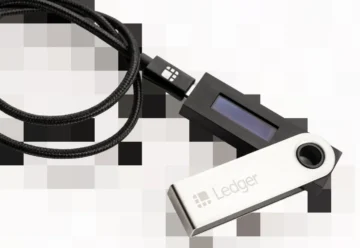U.S. Financial Regulators Begin Updating Rules for Crypto Market

The U.S. Securities and Exchange Commission (SEC) and the Commodity Futures Trading Commission (CFTC) launched initiatives aimed at revising the regulatory framework for the digital asset sector in line with the new priorities of the Donald Trump administration.
Caroline D. Pham, Acting Chair of the CFTC, announced the launch of the Crypto Sprint program, designed to implement the agency’s mandates regarding digital asset regulation.
Recently, Donald Trump’s administration introduced a comprehensive reform of digital asset market regulation, proposing several initiatives related to clarifying regulator powers, reforming taxation systems, and limiting oversight.
The President’s Working Group on Digital Asset Markets put forward 18 key recommendations for the CFTC, which Pham stated the agency plans to implement as soon as possible. The main recommendations include:
- developing a unified and efficient licensing system allowing market participants to combine multiple activities under a single registration;
- granting the CFTC authority to regulate spot markets for non-security digital assets and establishing market conduct standards;
- introducing rules on segregation of client digital assets and reporting requirements for trading platforms;
- providing clarifications on the use of digital assets and stablecoins as collateral;
- enabling the use of blockchain technologies for recordkeeping compliance and implementing tokenized non-cash collateral;
- coordinating SEC and CFTC rulemaking, including public consultations and regulatory sandboxes.
According to Caroline D. Pham, collaboration with the SEC and other regulators will be a key element of the Crypto Sprint program, as its primary goal remains to create a regulatory environment that fosters innovation while protecting market participants. Achieving this, Pham believes, is only possible through joint efforts.
Simultaneously, SEC Chair Paul Atkins announced the launch of Project Crypto, aimed at modernizing crypto market regulation and also supporting Donald Trump’s administration’s goals. Among other plans, the agency intends to:
- review the application criteria for the Howey Test and clearly distinguish between digital assets that are securities and those that are not;
- create conditions for launching “super-apps” that allow trading both traditional securities and crypto-assets on a single platform;
- introduce simplified or temporary regulatory regimes for ICOs, airdrops, DeFi projects, and early-stage crypto startups;
- encourage the return of crypto companies that left the U.S. due to previous stringent regulatory policies;
- strengthen coordination with the CFTC and other regulators to accelerate implementation of recommendations.
The SEC also officially announced the launch of the Crypto Task Force initiative, under which Commissioner Hester Peirce will hold ten in-person meetings with crypto company representatives in nine U.S. cities. Companies eligible to meet with Peirce must have fewer than ten employees and be less than two years old.
Peirce stated that involving a broader audience in dialogue will help the agency expand its understanding of the industry by gathering data from diverse crypto sector participants. “We want to hear from people who may not have had a voice in past policymaking efforts. Any regulatory framework will have far-reaching effects, and we want to ensure that our outreach is as comprehensive as possible,” Peirce said.
Previously, the SEC and CFTC competed for regulatory authority over the crypto market without seeking compromise. However, following the official adoption of the GENIUS Act, the regulators began developing a joint strategy, allocating jurisdiction and harmonizing rules to eliminate duplicative requirements.











